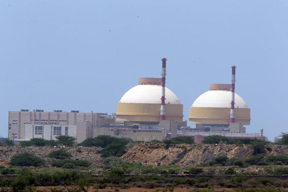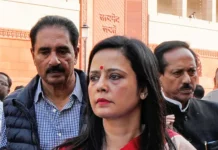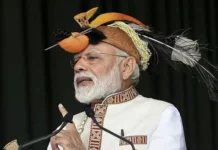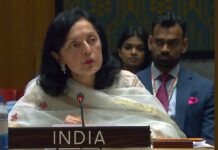 NEW DELHI: After three years of hectic negotiations, India and France have agreed on the cost of power that will be generated by Jaitapur Nuclear Power Plant (JNPP), clearing a major hurdle in the path of the project.
NEW DELHI: After three years of hectic negotiations, India and France have agreed on the cost of power that will be generated by Jaitapur Nuclear Power Plant (JNPP), clearing a major hurdle in the path of the project.
The two sides have agreed on Rs 6 per unit, down from Rs 9.18 per unit quoted by the French company Areva initially, which was not acceptable to India, sources told PTI here.
France has also decided to provide India a loan for the project at 4.8 per cent interest rate for 25 years, they said.
The decisions were arrived at during a meeting between National Security Advisor Shivshankar Menon and Chairman of France’s Commission on Atomic Energy and Alternative Energies (CEA) Bernard Bigot in Paris recently, they said.
The Nuclear Power Corporation of India (NPCIL) and Areva are now working out further modalities.
The Jaitapur project in Ratnagiri district of Maharashtra will have 6 EPRs (European Pressurized Reactors) with each reactor producing 1650 MWs of electricity.
The cost of power was a major hurdle in the forward movement on JNPP with the two sides differing on it earlier.
Areva, which was building the reactors for JNPP, had quoted the price of Rs 9.18 per unit. This was strongly opposed by the Department of Atomic Energy (DAE) and NPCIL.
DAE secretary R K Sinha had also told reporters in December last year that the minimum price India could zero down to was Rs 6-6.50 per unit.
However, France now has agreed to bring down the price to Rs 6. JNPP would be one of the costliest nuclear power plant projects considering its sheer size and the new technology.
French officials say the reactors are expensive because of enhanced safety measures.
“There are no free lunches. All energy comes with associated costs,” said Anne Lauvergeon, Areva’s Honorary Chairperson at the India Today Conclave recently.
She had played a major role in negotiations between India and France.
France, however, has said that there were few aspects which needed further discussions like project management and the liability issues as there has not been any clarity over them.
In the meeting, India also asked France to use its good offices for speedy execution of the Indo-Japan Nuclear Deal which can help both Indian nuclear industry as well as foreign collaborators.
France is expected to take up the issue when Japanese Prime Minister Shinzo Abe visits Paris in May this year.
After its completion, the JNPP project would be highest nuclear energy generation plant in the country. The Kudankulam Nuclear Power Plant (KKNPP) would have four reactors of 1000 MWs each.
Lauvergeon said that India is the fourth largest energy consumer in the world after the US, China and Europe, and the country’s energy needs are projected to grow at a rapid rate and it will require more than four times its currently installed generation capacity by the year 2031-32.
“It is true that India has substantial, untapped coal reserves but these are not eternal. The wind and Sun cannot become the main means of electricity generation in India and oil and gas are scarce in the country, which has to import most of its needs and these are prone to price volatility,” said Lauvergeon, who has also visited the Jaitapur site once.-PTI






